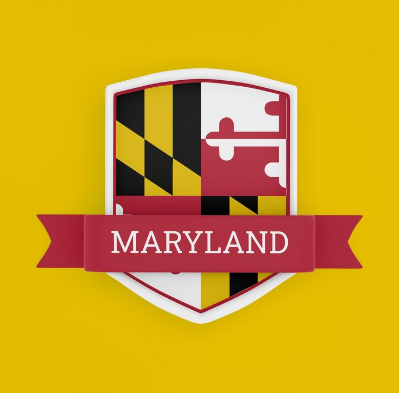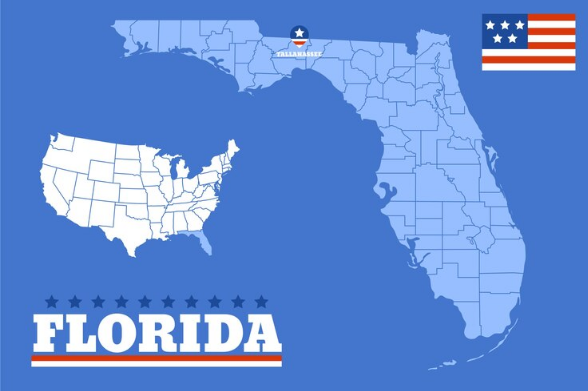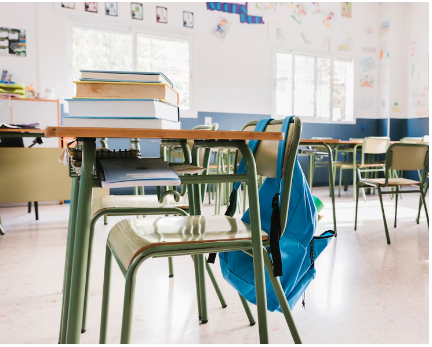Dyslexia Schools In Alabama [New Updates]

When evaluating dyslexia-friendly schools in Alabama, it's essential to apply a rigorous, multi-faceted approach to ensure that these institutions truly support students with dyslexia.
Schools should be assessed based on their ability to offer specialized programs, trained staff, evidence-based teaching methods, and access to assistive technology.
In Alabama, schools that are considered dyslexia-friendly often excel in these areas, providing a supportive environment that fosters academic and personal growth for students with dyslexia.
By collaborating with experts, collecting data through surveys and observations, and validating findings with parents and educators, we can confidently recommend schools that genuinely meet the needs of dyslexic students.
Continuous monitoring and feedback ensure that these recommendations remain relevant and effective, offering Alabama families reliable guidance in choosing the right educational setting for their children.
This article will guide you through some of the top dyslexia-friendly schools in the area, providing you with the information you need to make an informed decision for your child's education.
The schools recommended have been carefully evaluated based on their specialized programs, the dedication of their staff, and their use of proven teaching methods.
We’ve spoken with parents, educators, and experts, and seen firsthand what works. The schools that made the list have shown a real commitment to helping students with dyslexia succeed, both academically and personally.
We want to make sure you have the information you need to choose a school where your child will feel supported, understood, and encouraged to reach their full potential.
What is the Percentage of Dyslexia Amongst Students In Alabama?
In Alabama, dyslexia affects a significant portion of the student population. Estimates indicate that between 10% and 20% of students in Alabama schools are impacted by dyslexia .
According to the 2021 Alabama Reading Initiative (ARI) report, out of approximately 205,000 K–3 students statewide, 34,388 (about 17%) were screened for dyslexia. Of those screened, 16,201 students—nearly 47%—were identified as exhibiting characteristics of dyslexia
To address this, Alabama has implemented several measures:
- Mandatory Screening: Under the Alabama Literacy Act, all K–3 students are screened for literacy deficits, including dyslexia. Students who show signs of dyslexia receive specific interventions .
- Recognition of Dyslexia Therapists: Alabama is the first state to formally recognize dyslexia therapists, known as Certified Academic Language Therapists (CALT). These professionals undergo extensive training to support students with dyslexia .
Sources; (al.dyslexiaida.org) (wsfa.com)
Legislation and Policies for Dyslexia In Alabama
Alabama has established a robust framework to support students with dyslexia through legislation, policies, and structured interventions. Which includes:
Alabama Literacy Act (ALA)
Enacted in 2019 and amended in 2022, the Alabama Literacy Act (Act #2019-523) aims to enhance reading proficiency among K–3 students. It mandates early identification of reading deficiencies, including characteristics of dyslexia, and requires evidence-based interventions.
Students demonstrating reading challenges receive individualized reading improvement plans developed collaboratively by educators and parents. These plans outline specific interventions, progress monitoring, and strategies to support reading development.
Sources (alabamaachieves.org, sreb.org)
Dyslexia Screening and Intervention
Alabama's policies emphasize early screening for dyslexia characteristics. Students in K–3 are assessed using tools that evaluate skills such as phonological awareness, decoding, and fluency. If a student exhibits deficits in multiple areas, they are considered to have characteristics of dyslexia and are provided with targeted interventions. These interventions are systematic, explicit, and multisensory, focusing on areas like phonics, vocabulary, and comprehension.
Sources (sreb.org, law.justia.com)
Educator Training and Support
To ensure effective implementation of dyslexia interventions, Alabama mandates professional development for educators. Teachers receive training in dyslexia awareness, identification, and instructional strategies aligned with the Science of Reading. This training equips educators to recognize dyslexia characteristics and apply appropriate teaching methods to support affected students.
Sources (stateofdyslexia.org, alabamaachieves.org, aamu.edu)
Resources and Guidance
The Alabama State Department of Education provides comprehensive resources, including the Dyslexia Resource Guide and the 504 Guide to Support Students with Dyslexia.
These documents offer detailed information on identification processes, intervention strategies, and accommodations to support students with dyslexia in the educational setting.
For more detailed information, you can refer to the Alabama Literacy Act here and the Dyslexia Resource Guide here.(alabamaachieves.org)
What Type of School Is Best For a Dyslexic?
The ideal schools are the ones where students can learn without all that unnecessary stress weighing them down.
Plus, these schools are all about recognizing the unique strengths that come with dyslexia, like creativity and thinking big-picture.
If your kid has a special interest, whether it's engineering, chess, music, or anything else under the sun, these schools give them the time and space to chase their passions.
Forget about just hunting for "reading programs" right away because, believe it or not, dyslexic students often thrive when their reading lessons align with their interests.
Now, here's the deal: if your child isn't loving school and isn't coming home all pumped up about learning, it might be time to explore other options. And guess what? That's perfectly okay – even awesome.
You can take your child out of a place that doesn't fit, even if you don't have the next school lined up right away. It's a powerful message to your child that you're in their corner and ready to support them.
Let them take a breather, catch up on some sleep, and in the meantime, you can figure out the next steps together.
Looking for learning difference/dyslexia friendly schools? Here are some must ask questions to help you pick the right dyslexia friendly school for your child.
Before attending your meeting, do a bit of background research. The more you know about dyslexia, teacher education programs and intervention programs, the more targeted you can be with your questions and the better you will understand the answers.
Support Services for Students with Dyslexia in Alabama
Alabama has established a comprehensive framework to support students with dyslexia, combining legislative mandates, specialized training programs, and community initiatives. Here's an overview of the key support services available:
📘 Alabama Literacy Act (ALA)
Enacted in 2019, the Alabama Literacy Act mandates that all K–3 students in public schools be screened for reading difficulties, including dyslexia. Students exhibiting characteristics of dyslexia must receive specific interventions, and individualized reading plans are developed in collaboration with parents and educators.
Certified Academic Language Therapist (CALT) Programs
To enhance instructional support for dyslexic students, Alabama offers CALT training programs for educators. These programs, such as the one at the University of Alabama, involve extensive coursework and practicum hours, preparing teachers to provide specialized instruction. Graduates are equipped to implement structured literacy approaches tailored to students with dyslexia.
University of West Alabama's Dyslexia Therapy Degree
The University of West Alabama offers a Master of Education in Dyslexia Therapy, the first of its kind in the state. This program trains therapists to deliver structured, multisensory instruction based on the Orton-Gillingham approach, focusing on early intervention for elementary students. (uwa.edu)
School District Initiatives
Huntsville City Schools: Provides early identification and intervention programs, supported by literacy specialists trained in dyslexia-specific strategies.
Shelby County Schools: Implements universal screening for K–5 students and offers targeted interventions based on the Alabama Literacy Act guidelines.
Calhoun County Schools: Employs trained educators to administer dyslexia screenings and interventions, ensuring accommodations are in place for identified students.
Community and Nonprofit Support
The Alabama Scottish Rite Foundation assists schools by providing services for students with dyslexia, including funding for training programs and direct student support.
The International Dyslexia Association's Alabama Branch (IDA-AL) offers resources, training, and advocacy to support individuals with dyslexia and their families.
University-Based Support Services
The University of Alabama's Speech and Hearing Center houses the Alabama Language-based Literacy Program (ALLP), offering assessments and interventions for individuals with dyslexia and related language-based learning difficulties. (shc.cd.ua.edu)
Best Dyslexia schools In Alabama
Alabama offers several reputable schools that specialize in supporting students with dyslexia. These institutions provide tailored programs, certified educators, and structured literacy approaches to help students thrive academically. Here are some of the top dyslexia-focused schools in Alabama:
- Greengate School at Randolph (Huntsville, AL)
Greengate School is the only school in Alabama accredited by the Orton-Gillingham Academy, making it one of just 18 such schools nationwide. It serves students in grades 1–8 with dyslexia and related language-learning differences. The school offers a low student-to-teacher ratio and a curriculum that integrates structured literacy with co-curricular activities.
🔗 Visit Greengate School at Randolph
- Spring Valley School (Birmingham, AL)
Spring Valley School provides a comprehensive K–12 education for students with learning differences, including dyslexia, dysgraphia, and dyscalculia. The school employs nine Certified Academic Language Therapists (CALTs) who deliver daily dyslexia therapy using multisensory, structured language instruction. With a 4:1 student-teacher ratio, Spring Valley ensures personalized attention for each student.
- Bright Academy (Mobile, AL)
Bright Academy is the only full-day school on the Alabama Gulf Coast dedicated to dyslexia education. Serving students in grades 1–9, the school offers daily dyslexia therapy sessions conducted by certified therapists. Bright Academy emphasizes a positive, Christian environment where each child's unique abilities are nurtured.
- Read Write Academy (Decatur, AL)
Read Write Academy offers a full-day, year-round program specifically designed for students with dyslexia and other learning differences. Unlike traditional tutoring centers, the academy provides a comprehensive curriculum covering reading, writing, math, science, and social studies, all tailored to individual learning plans.
- Lindsay Lane Christian Academy – Dyslexia Center (Athens, AL)
The Dyslexia Center at Lindsay Lane Christian Academy serves students in grades K–6 who have been identified as dyslexic. Students receive daily instruction in language, reading, spelling, and penmanship in small group settings with Orton-Gillingham trained teachers, along with twice-weekly private tutoring sessions.
🔗 Visit Lindsay Lane Christian Academy Dyslexia Center
- Athens Bible School – Dyslexia Program (Athens, AL)
Athens Bible School provides a dedicated dyslexia program led by Mrs. Kerry Cox, an Associate Level certified instructor with the Academy of Orton-Gillingham Practitioners and Educators. The program employs the Orton-Gillingham approach, offering structured, multisensory, and individualized instruction to help students with dyslexia improve their reading and language skills.
🔗 Visit Athens Bible School Dyslexia Program
- Bright Beginnings Academy (Mobile, AL)
Bright Beginnings Academy is a private, non-profit school dedicated to serving students with dyslexia and other language-based learning differences. The school offers a comprehensive curriculum that integrates multisensory teaching methods, aiming to build confidence and academic success in its students.
🔗 Visit Bright Beginnings Academy



